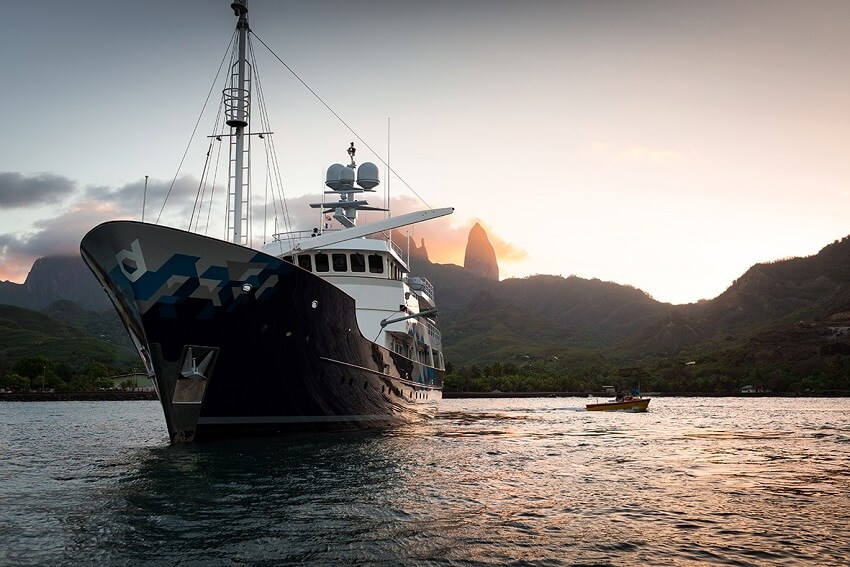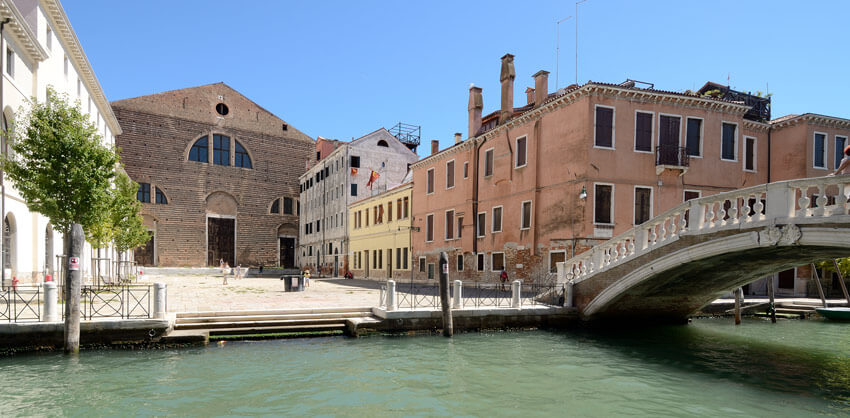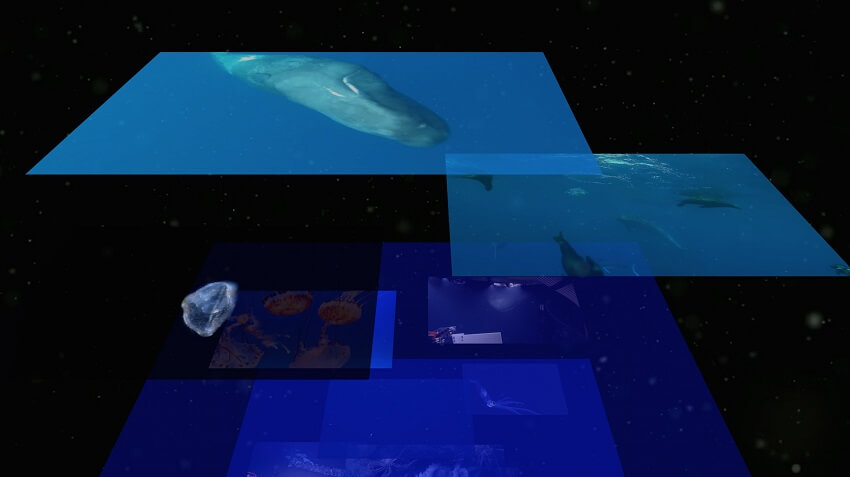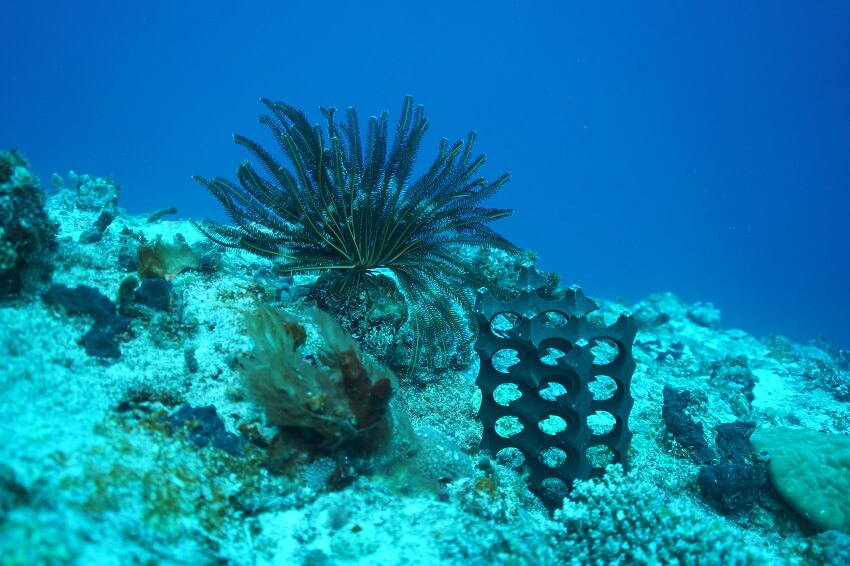Interview by Heather Sparks

From the 10,000 meter deep Tonga Trench and the threatened coral reefs of Jamaica to the coastal city of Kochi, India and the famously water-crossed city of Venice, Italy, TBA21-Academy director Markus Reymann has had the rarified position of snorkeling through, studying above, and contemplating some of the world’s most far-flung oceanic locales aboard a well-appointed ship christened the Dardanella.
This unmoored exploratory vessel hosts hand-selected crews of marine biologists, artists, scientists, choreographers and curators and is the dreamchild of lifelong scuba diver and arts patron Francesca Thyssen-Bornemisza (also the founder of the TBA21 contemporary arts foundation in Vienna, Austria).
If you have had the pleasure to take in an enormous Seascape painting by Gerhard Richter or peer disbelievingly at the intensely obsessive graphite drawings of the ocean’s surface by Vija Celmins, then you’ll be easily convinced that artists are able to reveal truths about the ocean as meaningful as are scientists.
It’s Thyssen-Bornemisza’s and Reyman’s idea to inspire meaningful change and exchange between the disciplines at a time when recent news has been shockingly bad for the oceans: The World Wildlife Fund now estimates that a third of the world’s fisheries have been pushed beyond their limits. Other sources predict the seas could be emptied of fish by 2048. A recent, overwhelmingly popular attempt to clean up the Pacific garbage patch has failed.
It’s aboard the Dardanella and also on landbound events as far-flung as the Palm Desert of California and the Goethe Institute of Colombo, Sri Lanka, that the TBA21-Academy strives to develop new dialogues and thinking about the seas to enrich the Blue Movement and humanity in general, and to combine science and art in an attempt to reframe our relationship to the 70% of our planet that is liquid. TBA21-Academy has just opened a permanent and idyllic location in Venice, Italy, a city bound so tightly to the sea that an annual marriage ceremony, the Ascension, is held to bind the two entities.


You are a trained actor and co-founder, and director of TBA21–Academy. How and when did your interest in art, marine ecology and the TBA21–Academy initiative come about?
I don’t think that there was a specific moment. It was more of a process. During my training at the Hochschule für Musik und Theater in Hamburg, I studied with Jutta Hoffmann, who was highly influenced by Berthold Brecht and the understanding that appearing on stage is a political statement. This has always stuck with me. Being able to work with artists and experts across disciplines to explore environmental concerns that have real social, political, and ecological consequences has been extremely rewarding.
TBA21-academy has been an itinerant platform for cultural production and interdisciplinary exchange. Recently, it has launched Ocean Space—a new, collaborative global hub for transdisciplinary oceanic research and discovery, housed permanently in the historic Church of San Lorenzo in Venice. Why is it relevant now to materialize the program into a physical space?
After 7 years of developing expansive programming all over the world, it seemed to be the right moment to bring together all of the facets of TBA21–Academy under one roof. Collaboration is a central aspect of our practice, and we conceived of Ocean Space as a collaborative platform, not as an exhibition space.
We felt it was important that our expanded form of research, investigative exhibitions, public engagement, and discourse have a permanent home. Venice’s history and connection to the ocean make it an ideal setting in Europe.
What are the aims and ambitions for Ocean Space? And what have been the main challenges behind the project?
We want to challenge mindsets and foster action and ocean advocacy—daring audiences to make a difference by thinking differently. The major challenges of Ocean Space—and its opportunities—lie in its transdisciplinary thought and diversity. While there is an increased interest in transdisciplinary approaches—ultimately, we are accustomed to thinking in silos about the world.
TBA21–Academy has an exploratory soul, having conducted and been involved in numerous expeditions. What is your main reflection after all these expeditions?
The main takeaway is that these expeditions are transformational—they are communal and immersive experiences that foster encounters with different cultures, which generates new knowledge systems and practices that are intrinsically entangled with the ocean. Besides that, approaching these expeditions as a form of scientific research allows us to discover concepts and realities around oceanic topics and apply them in practical and enriching ways—such as incorporating our findings into our conservation efforts in Jamaica or including them in our long-term research commissions.
Why do you think it’s important that artists keep addressing and interpreting environmental issues?
I believe that artists are the arbiters of our time—able to make underlying currents and conflicts visible long before they hit the mainstream. Beyond that, their ability to frame experiments as art allows everyone involved to become more daring in their thinking, more radical in their proposals, and more imaginative in their solutions.
We need to dramatically change our behaviour on this planet to make the long-term survival of our species possible. Artists help us imagine radically different behaviours and realities, which all of us can take inspiration from and act upon.
The dire state of our oceans became a matter of greater public awareness in 2018. What does TBA21–Academy expect from its audience in the coming years?
Growing awareness is the first step. The next step is action. I admire the current student movement in Europe, where thousands skip school to demand action from politicians. I hope that our work reinforces the understanding that no matter where we live, we are all connected to the ocean. The ocean has a major influence on our lives. We should exercise our rights as citizens and demand better policies for this planet—beyond national jurisdictions or economic interests. I believe that the awareness is present in many societies, but the challenges seem too abstract or too enormous. This is where I believe art can be an extremely powerful agent of change.
What is your chief enemy of creativity?
Stress.
You couldn’t live without…
Time at sea.






